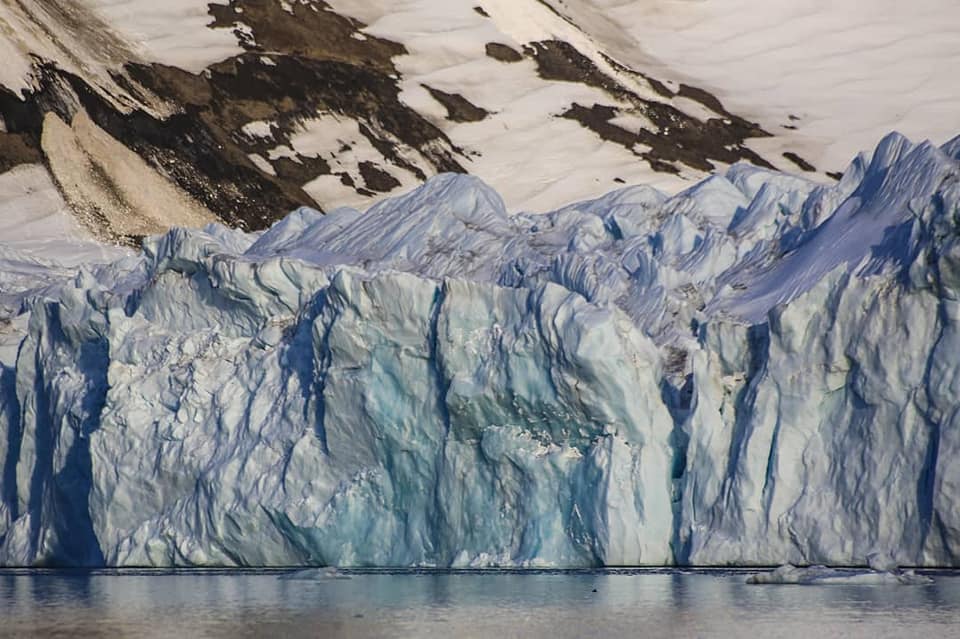

One of the key areas of the current Arctic agenda has become the cleaning of territories from the already accumulated hazardous traces of economic activity, the volume of which is calculated in millions of tons. This was stated by the Minister for the Development of the Far East and the Arctic of the Russian Federation Alexei Chekunkov during a meeting in the Federation Council dedicated to the implementation of the public federal project «Clean Arctic».
In 2021, as part of the project more than 1,500 tons of waste were collected in the Arctic regions of Russia: barrels for fuel, tires, plastic, wood, the minister said. According to him, the work to eliminate pollution took place in the Murmansk and Arkhangelsk regions, as well as in the Krasnoyarsk Territory, Yakutia, the Yamalo-Nenets and Nenets Autonomous Districts, the Republics of Komi and Karelia.
On the part of business, the project was supported by leading Russian companies such as Nornickel and Russian Railways, said Aleksey Chekunkov.
“We continue to work actively with business and hope that more business structures operating in the Arctic regions will be involved in this project,” the minister said.
Since July of this year, more than 2,200 volunteers have taken part in the project, next year more than 3,000 volunteers have expressed a desire to participate in the project, Chekunkov noted. “The Clean Arctic project not only attracts volunteers, but has also become a platform for the emergence of interesting initiatives and new meanings. In the Murmansk region, volunteers launched the Arctic beaches; in Chukotka, an art museum of interesting finds and artifacts was created under the program of “Clean Arctic”.
Vice Speaker of the Federation Council, Galina Karelova, expressed the opinion that the work to clean up the Arctic territories within the Clean Arctic project is an example of well-coordinated interaction between citizens, government officials, environmental and scientific communities, public and volunteer organizations, as well as business structures. According to her, business representatives are well aware that the support of volunteers in this area is extremely important today.
Karelova noted the high state, corporate and public involvement in the environmental agenda.
“The plans include not only the implementation of measures to eliminate negative consequences in the development of the Arctic regions, but also the popularization of a responsible attitude to the unique Arctic nature, which affects the climatic conditions of the whole world,” she said.
Deputy Prime Minister of the Krasnoyarsk Territory, Nikolai Zuev, spoke about an action to clean up the banks of the Yenisei from scrap metal as a successful example of interaction between regional authorities, volunteers and business.
"The undisputed leader in participating in the Clean Arctic project is Nornickel, which supported the volunteer movement." According to the deputy chairman of the regional government, Nornickel is doing serious work to renovate its production sites, and is liquidating unauthorized dumps.
“In total, about 87 dilapidated buildings were dismantled in 2021. The volume of investments in the purchase of special equipment amounted to more than 3 billion rubles. 247 thousand tons of construction waste, 37 thousand tons of scrap metal were collected. Sanitary treatment of the freed-up area from garbage was carried out." This work will continue, Nikolai Zuev said. “The main forces will be directed at demolishing old buildings and structures in the Kayerkan area, the Nadezhdino construction base and the territory of the Norilsk-Taimyr Electric Company,” said the deputy chairman of the regional government. He noted that the regional leadership plans to expand the circle of project participants at the expense of other socially responsible companies.
Business can and should be involved within the framework of social responsibility not only at the regional, but also at the federal level, says Senator Konstantin Dolgov. “We cannot force, but you can induce, interest. So that appropriate signals go to the regional structures along the business hierarchy from top to bottom,” the senator said.
Apart from Russian Railways and Nornickel, he also named Murmansk Commercial Sea Port, which actively supports volunteer events in the Arctic zone, among the leading companies in social responsibility in the environmental sphere.
 Blogs
Blogs
